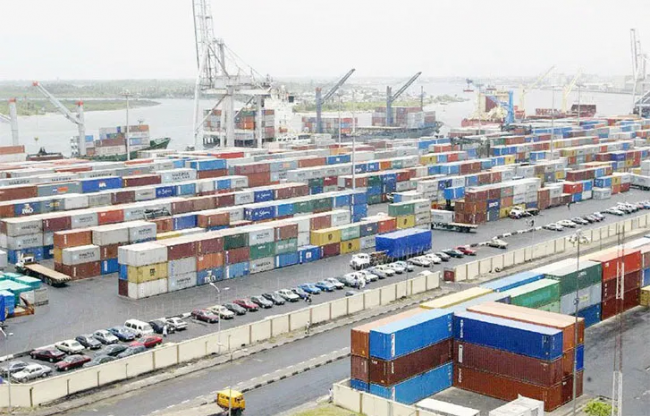Nigerian maritime agencies are reportedly working out the modalities on how to begin the transportation of containers from Lagos to Onitsha through barges.
This was disclosed by Presidential Media Aide, Tolu Ogunlesi, through a couple of tweets on Sunday night. According to his tweets, the Nigerian Ports Authority (NPA) is working alongside the Nigerian Shippers Council and the Nigerian Inland Waterways Authority (NIMASA) in this regard.
Ogunlesi’s disclosure comes after the Nigerian Ports Authority announced over the weekend that the biggest container vessel to have ever called at any Nigerian port, was recently berthed at the Onne port in Rivers State.
“The Maerskline Stardelhorn vessel with Length overall of 300 metres, width of 48 metres was received at the Federal Ocean Terminal (FOT), Onne in Rivers State at 1620 hours on Saturday, August 15, 2020. The vessel, which has a capacity of 9,971(TEUs) is a flagship from Singapore,” The NPA announced.
The Nigerian Ports Authority is pleased to announce the successful berthing of the biggest Container vessel to ever call at any Nigerian port. pic.twitter.com/K9vAWh3NJX
— Nigerian Ports (@nigerianports) August 15, 2020
It should be noted that barges are long flat bottomed boats that are used to convey freights through canals and rivers.
Why it matters:
A recent research analysis by SBM Intelligence, as reported by Nairametrics, revealed that it costs more to transport containers from Nigeria’s Apapa port to local warehouses, compared to how much it costs to do same from South Africa’s Durban Harbour and Ghana’s Tema Port. In specific terms, businesses spend an average of $2,050 transporting containers from Apapa port. This is far more than the $208 it costs to transport containers from Durban Harbour to South African warehouses and the $285 it costs to do same in Ghana.
Now, considering the fact that a significant number of the containers that berth in Apapa goes straight to the South Eastern part of the country, this plan by Nigeria’s maritime agencies is expected to help cut down shipping costs for many businesses.
Transporting containers through barges would also help reduce the rate of accidents caused by trailers transporting containers across the country.












